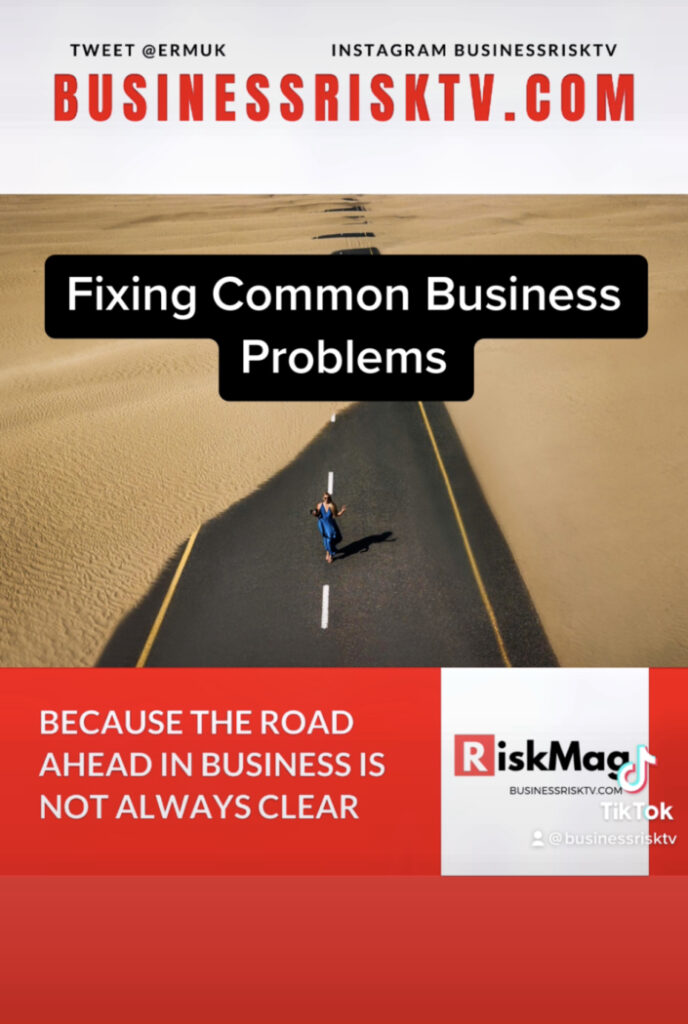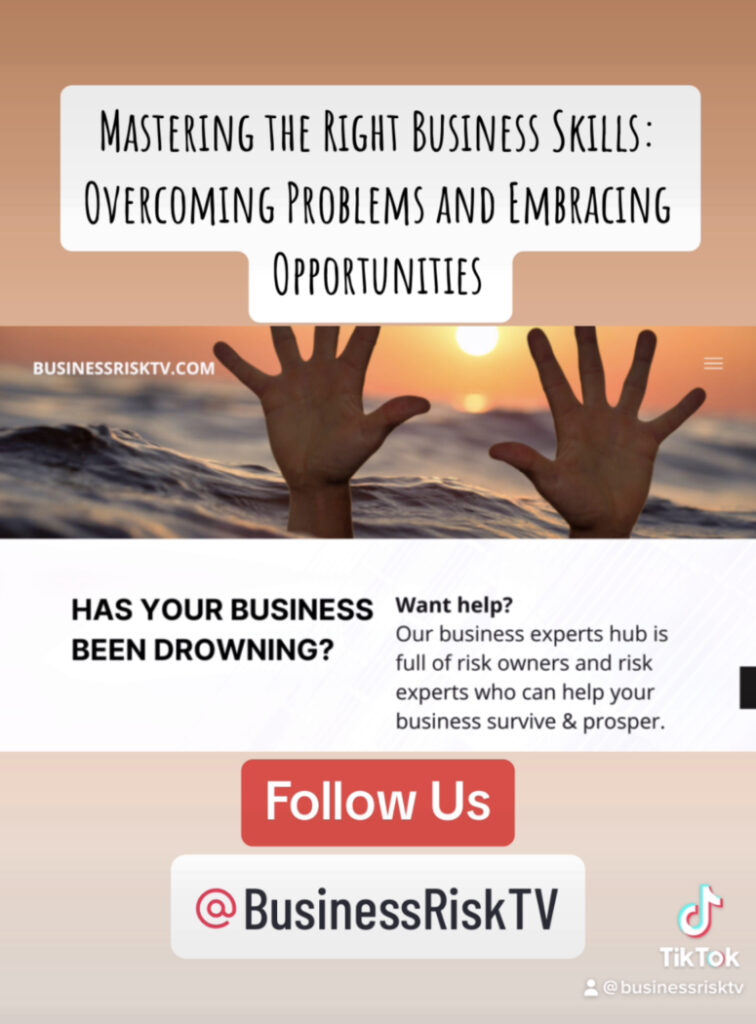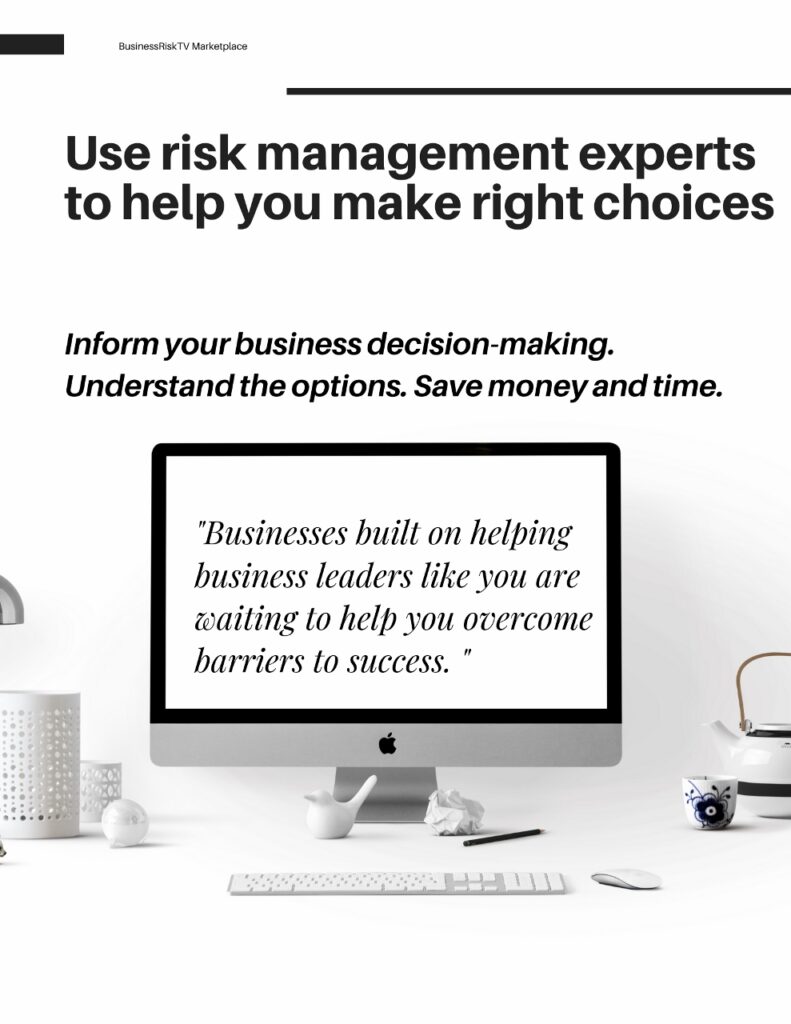Fixing A Business With BusinessRiskTV
Fixing Common Business Problems
Fixing a business can be a daunting task, but it is not impossible. A business can face various challenges, from declining sales to poor employee morale, and if these issues are not addressed in a timely manner, they can lead to the failure of the business.
However, before we dive into the process of fixing a business, it’s essential to understand what exactly needs to be fixed. Here are some of the common problems that businesses face:
Declining Sales: This is one of the most common problems that businesses face. If sales are declining, it means that the company is not generating enough revenue to sustain its operations. This could be due to various reasons, including increased competition, changes in consumer preferences, or economic downturns.
Poor Employee Morale: Employee morale plays a crucial role in the success of a business. If employees are not motivated or engaged, it can lead to decreased productivity, increased absenteeism, and high turnover rates. This could be due to poor management, inadequate training, or a toxic work environment.
Inefficient Processes: If a business is using outdated or inefficient processes, it can lead to increased costs and decreased productivity. This could be due to lack of automation, poor communication, or inadequate training.
Cash Flow Problems: Cash flow is the lifeblood of any business. If a business is facing cash flow problems, it means that it’s not generating enough revenue to cover its expenses. This could be due to slow-paying customers, excessive debt, or poor financial management.
Lack of Innovation: Innovation is essential for the long-term success of any business. If a business is not innovating, it can lead to stagnation and decreased competitiveness. This could be due to a lack of investment in research and development, or a failure to keep up with changing market trends.
Once you have identified the problem, the next step is to develop a plan to fix it. Here are some steps that businesses can take to address these common problems:
Conduct a SWOT Analysis: A SWOT analysis is a useful tool for identifying the strengths, weaknesses, opportunities, and threats of a business. By conducting a SWOT analysis, businesses can identify their areas of strength and weakness and develop a plan to address them.
Set Goals and Objectives: Once the weaknesses have been identified, it’s essential to set specific goals and objectives for addressing them. These goals should be specific, measurable, attainable, relevant, and time-bound (SMART).
Develop an Action Plan: An action plan is a detailed plan that outlines the steps that need to be taken to achieve the goals and objectives. The action plan should include timelines, responsibilities, and resources needed to achieve the goals.
Invest in Training and Development: In many cases, poor employee morale and inefficient processes can be attributed to a lack of training and development. By investing in training and development, businesses can improve employee skills and productivity.
Review and Improve Financial Management: Cash flow problems are often the result of poor financial management. Businesses can address this by reviewing their financial management processes and implementing improvements such as better invoicing practices or more frequent financial reporting.
Embrace Innovation: Innovation is essential for the long-term success of any business. By embracing innovation, businesses can stay ahead of the competition and meet the changing needs of their customers.
Seek Professional Help: In some cases, businesses may need to seek professional help to address their problems. This could include hiring a consultant or seeking advice from industry experts.
While these steps are not exhaustive, they provide a useful framework for fixing a business. Let’s look at some specific examples of how these steps can be applied to common business problems:
Example 1: Fixing Declining Sales
Conduct a SWOT analysis to identify the factors contributing to declining sales. This could include increased competition, changes in consumer preferences, or economic downturns.
Set specific goals and objectives for addressing the factors identified in the SWOT analysis. For example, if increased competition is identified as a factor, a goal could be to increase market share by a certain percentage.
Develop an action plan that outlines the steps needed to achieve the goals and objectives. This could include increasing marketing and advertising efforts, improving product quality, or expanding into new markets.
Invest in training and development for sales staff to improve their skills and productivity.
Review and improve financial management practices to ensure that revenue is being generated and expenses are being controlled.
Embrace innovation by introducing new products or services that meet the changing needs of customers.
Seek professional help if necessary, such as hiring a consultant or seeking advice from industry experts.
Example 2: Fixing Poor Employee Morale
Conduct a SWOT analysis to identify the factors contributing to poor employee morale. This could include poor management, inadequate training, or a toxic work environment.
Set specific goals and objectives for addressing the factors identified in the SWOT analysis. For example, a goal could be to improve employee engagement by a certain percentage.
Develop an action plan that outlines the steps needed to achieve the goals and objectives. This could include improving communication between management and employees, increasing training and development opportunities, or addressing any issues with the work environment.
Invest in training and development for employees to improve their skills and productivity.
Review and improve financial management practices to ensure that employees are being compensated fairly and that benefits are competitive.
Embrace innovation by introducing new programs or initiatives that improve employee engagement and satisfaction.
Seek professional help if necessary, such as hiring a consultant or seeking advice from industry experts.
Fixing a business is not an easy task, but it is essential for the long-term success of any organisation. By identifying the factors contributing to common business problems such as declining sales, poor employee morale, inefficient processes, cash flow problems, and lack of innovation, businesses can develop a plan to address them.
The steps involved in fixing a business include conducting a SWOT analysis, setting specific goals and objectives, developing an action plan, investing in training and development, reviewing and improving financial management practices, embracing innovation, and seeking professional help if necessary.
By taking these steps, businesses can improve their chances of success and achieve their goals. It’s important to remember that fixing a business is a continuous process, and it requires ongoing effort and dedication. But with the right approach, any business can overcome its challenges and thrive in today’s competitive environment.
In addition to the steps outlined above, there are a few other key factors to keep in mind when fixing a business:
Communication is key. Make sure everyone in the organisation is aware of the plan to fix the business and their role in it. Encourage feedback and suggestions from employees to ensure that everyone is on the same page.
Focus on the customer. Ultimately, the success of any business depends on its ability to meet the needs of its customers. Make sure that any changes or improvements being made are geared towards improving the customer experience.
Stay flexible. As the business environment changes, so too will the challenges facing your business. Stay flexible and be prepared to adapt your plan as needed to address new challenges.
Celebrate successes. Fixing a business is hard work, and it’s important to celebrate the successes along the way. This can help to build momentum and maintain morale as the organisation continues to move forward.
Fixing a business is a challenging but essential task that requires a combination of analysis, planning, and action. By identifying the factors contributing to common business problems and taking concrete steps to address them, businesses can improve their chances of success and achieve their goals. Remember to stay focused on the customer, communicate effectively, and stay flexible in the face of new challenges. With these key principles in mind, any business can overcome its challenges and thrive in today’s competitive environment.

More articles videos and deals to protect your business better and grow your business faster
Fixing Common Business Problems

























